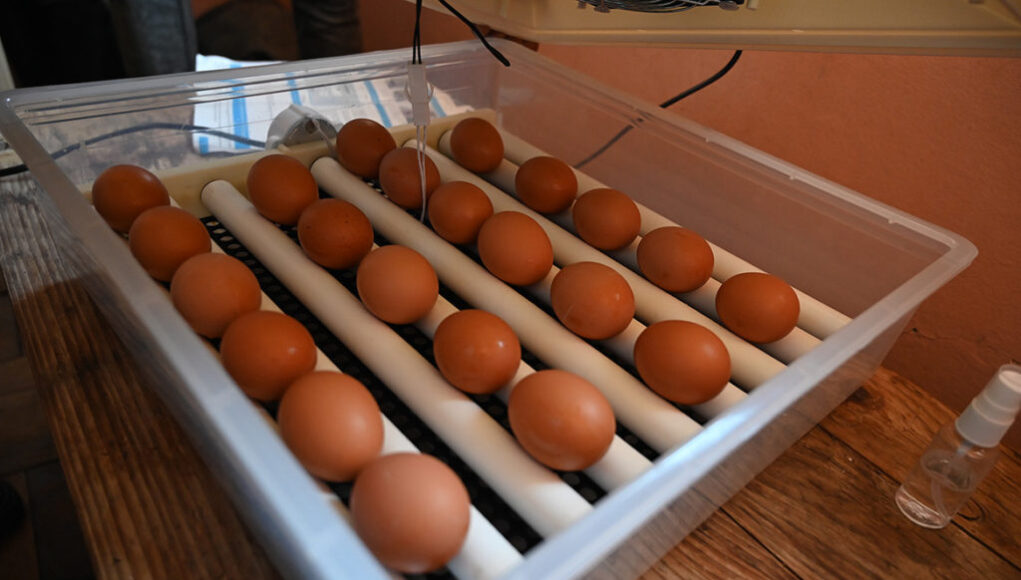Are you a chicken lover looking to learn more about egg incubation? Whether you’re a seasoned farmer or a curious beginner, understanding how an egg incubator works can be both fascinating and rewarding. In this article, we’ll address some common egg incubator FAQs to help you navigate the process of hatching eggs with confidence.

What is an Egg Incubator?
An egg incubator is a device that simulates the conditions of a brooding hen, providing the optimal environment for hatching eggs. It controls temperature, humidity, and air circulation to ensure that fertilized eggs develop into healthy chicks. For a deeper dive into the basics of egg incubation, check out this beginner’s guide.
How Does an Egg Incubator Work?
The primary function of an egg incubator is to create a stable environment where eggs can develop. It typically includes a thermostat to regulate temperature, a fan for air circulation, and a water reservoir to maintain humidity levels. For more detailed information on maintaining humidity, visit this guide.
Why Use an Egg Incubator?
Using an egg incubator allows for greater control over the hatching process. It ensures that eggs are kept at a consistent temperature and humidity, which is crucial for successful hatching. Additionally, incubators can hatch a larger number of eggs compared to a brooding hen, making them ideal for poultry enthusiasts and farmers alike.
Advantages of Using an Egg Incubator
- Consistent temperature and humidity control
- Increased hatch rate
- Ability to hatch multiple eggs simultaneously
What Factors Affect the Success of Egg Incubation?
Several factors can influence the success of egg incubation, including temperature, humidity, and egg quality. It’s important to use fresh and fertilized eggs and store them properly before incubation. For tips on storing eggs, visit this resource.
Temperature and Humidity
The ideal temperature for incubating chicken eggs is around 99.5F (37.5C), while humidity levels should be maintained between 40-50% for the first 18 days, increasing to 65-75% during the final days of incubation.
Egg Quality and Handling
Only fertilized eggs should be incubated, and they should be handled with care to avoid damage. Candling eggs can help determine fertility and development. Learn more about candling eggs here.
Common Challenges in Egg Incubation
While egg incubation can be a rewarding process, it can also present challenges. Temperature fluctuations, improper humidity, and poor ventilation can lead to unsuccessful hatching. Regular monitoring and adjustments can help mitigate these issues.
Temperature Fluctuations
Maintaining a consistent temperature is crucial for successful hatching. Invest in a reliable incubator with a thermostat and monitor it regularly to prevent fluctuations.
Humidity Control
Humidity is equally important in egg incubation. Too much or too little can affect the development of the embryos. For insights on maintaining optimal humidity levels, visit this article.
How Long Does It Take for Eggs to Hatch?
The incubation period for chicken eggs is typically 21 days. However, this can vary slightly depending on the breed and incubation conditions. It’s important to be patient and allow the eggs to hatch naturally.
What to Do After Eggs Hatch
Once the eggs have hatched, it’s crucial to provide proper care for the chicks. This includes maintaining a warm environment, providing food and water, and ensuring they are healthy. For more on chick care, see this guide.

Frequently Asked Questions
Can I use an egg incubator for duck or quail eggs?
Yes, you can use an egg incubator for various types of eggs, including duck or quail. However, it’s important to research the specific temperature and humidity requirements for each type of egg.
How often should I turn the eggs?
Eggs should be turned at least three times a day until the 18th day of incubation to prevent the embryo from sticking to the shell.
Is it normal for some eggs not to hatch?
Yes, not all eggs will hatch, even under optimal conditions. The fertility of the eggs and the incubation process can affect hatch rates.
In conclusion, understanding egg incubator FAQs is essential for anyone interested in hatching eggs successfully. By maintaining the right conditions and monitoring the process closely, you can enjoy the rewarding experience of watching new life emerge. For more information on egg incubation, explore resources like this article.
This article contains affiliate links. We may earn a commission at no extra cost to you.











